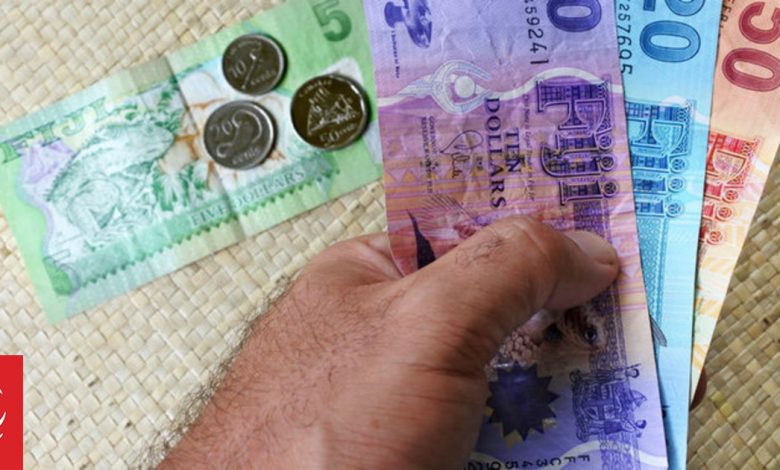Budget: Fiji government must focus on growing economy, reducing debt – economist

At least three percent of Fiji’s population has left the country amid a raft of issues and the coalition government will have to address this in the upcoming budget, a Fijian economist says.
Inflation, unemployment, high cost of living, labour shortage and government debt are among a host of challenges plaguing Fiji’s economy – all as it struggles to contain the proliferation of a hard drug crisis that authorities fear will make it a “nation of zombies”.
As a result, thousands of Fijians are opting to migrate to greener pastures – particularly Australia and New Zealand. Most of them are skilled and semi-skilled workers making up around 15 percent of the total labour force.
According to figures from the government, more than 70,000 people have departed the country in the last 18 months for short- and long-term education and employment opportunities.
“No economy will be able to sustain the loss of three percent of the best and brightest. It is a significant loss,” Professor Satish Chand said from the University of New South Wales told RNZ Pacific ahead of the Fiji Budget announcement.
Last week, the country’s Macroeconomic Committee revised the 2024 GDP growth forecast to 2.8 percent from 3.4 percent projected in November 2023.
“Despite the buoyant inflow of remittances and higher incomes, growth in consumption spending has moderated largely due to the notable number of Fijian citizens migrating abroad,” the Committee chair and Reserve Bank of Fiji governor, Ariff Ali said.
“The outturn in the economy has also been impacted by elevated cost of living as inflation soared to 7.1 percent in April 2024 and lower than expected Government expenditure, the latter affected by capacity constraints.”
Professor Chand said instability and better job prospects in New Zealand or Australia may be the reason behind the loss of human capital.
But, he added, it was crucial Prime Minister Sitiveni Rabuka’s coalition government understood what is causing the problem and create solutions to plug the gaps.
“We do not have the skills in the economy to fill the gaps that are rising.
“On one hand we have unemployment and on another we are short in skills in construction within the accommodation sector.”
He said “focussing on growing the economy” was important.
He noted the issue Fiji has been dealing with for a while has been a lack of investor confidence.
“At least for the previous [FijiFirst] government, they were quite aggressive on social spending to reduce the impact of the [Covid] pandemic. That is what was responsible for pushing [the national] debt close to 100 percent of the Gross Domestic Product].
“The level of debt went up but GDP also shrunk. That on its own put up extra debt.”
Professor Chand said the current coalition must look to carefully reduce debt.
“They [Fijian government] need to be very careful on not trying to slamming the breaks too hard by cutting back public expenditures, raising revenues to an extent that increases the suffering on the local population, but also cutting back on the growth of the economy.”
This is a sentiment shared by Labour Party (FLP) leader and former prime minister Mahendra Chaudhry.
“FLP believes the level of domestic debt is manageable and can support funding the budget deficit. However, FLP strongly advices that the nominal amount of foreign debt is reduced by ensuring that debt repayments supersede new foreign loans.
“This is not the time for austerity. To increase civil service pays in line with inflation and for much needed capital investment, the Budget will need to incur a deficit of about 6 percent of the GDP.
FLP said the coalition government has failed to adequately invest in essential infrastructure such as health, water and roads, which was necessary to stimulate the economy.
Tourism keeps economy afloat
Tourism, which contributes up to 35 percent of the economy activity, has bounced back to pre-Covid numbers just in time for the Budget.
But the the industry is having to deal with capacity constraints.
The month of May was one of Fiji’s highest visitor arrival figures on record, with over 82,000 visitors, according to the national tourism office.
Tourism activities also generated an estimated FJ$296 million for the economy.
“Tourism has rebounded in a big way, Professor Chand said.
“But we are hitting capacity constraints. We are at limits as far as accommodation and labour is concerned in that particular sector.”
He said the government must sustain this for the long-term.
Fiji’s Deputy Prime Minister and Finance Minister, Biman Prasad, will be revealing the Budget at 9.30am on Friday.
He is expected to tackle some of the major issues impeding the country’s development.
According to the news on Radio New Zealand




